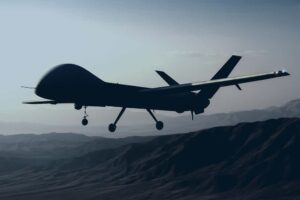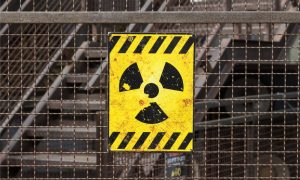
In the aftermath of the October 7 massacre, Israel will be hunting Hamas leaders and terror commanders worldwide. An Israeli security chief confirmed that this campaign will be global, and said that settling the score will take years.
A key part of the mission will be assigned to one of Mossad’s most secretive units, but don’t expect to read about it in the media. Kidon, which means “bayonet” or “tip of the spear” in Hebrew, specializes in operating in the shadows.
Over the years, it carried out some of Israel’s most daring assassination operations abroad.
Notably, Kidon’s formation is shrouded in secrecy to this day. The unit was established within Mossad in the 1960s or early 1970s, but no official record of its creation has ever been publicized.
What is known is that Kidon’s main mission is to eliminate prominent terrorists posing a significant threat to Israel’s national security.
According to foreign sources, Kidon employs dozens of field agents, including women. Some female operatives were reportedly involved in high-risk operations such as assassination missions in Iran.
The recruitment and selection process of Kidon operatives is classified. Mossad does not disclose exact details or publicly advertise openings. Candidates are assumed to be mostly IDF special forces veterans, who are thoroughly tested to ensure they meet the demanding requirements.
Training is intensive and specialized, covering a wide range of skills including surveillance, intelligence gathering, and diverse modes of warfare. Future operatives reportedly train for extended periods before being assigned to field operations.
Kidon skills and secrecy
Intelligence affairs journalist Yossi Melman wrote that in addition to weapons and explosives training, Kidon operatives learn skills such as driving different types of cars and motorcycles. He added that most Kidon members are employed on short-term contracts that expire after a few years, due to the extremely tense and dangerous nature of their work.
The unit deploys small squads of 2-4 field agents and obsessively safeguards their identities, says a book written by Melman and Dan Raviv and cited by Mako News. Operatives use assumed names even within Mossad in addition to several aliases during field missions.
Kidon teams excel at locating and tracking elusive targets, monitoring their daily routines, and collecting detailed information to enable targeted killings. The unit’s vast experience comes into play in picking optimal sites for attack and planning effective entry and escape routes.
Such meticulous plans will be required in the global hunt for Hamas. The terror group’s leaders are no doubt aware of Israel’s intentions, and will aim to take shelter in secure locations.
Kidon will likely have to operate in enemy territory rather than in neutral or friendly countries to reach its targets. This will require extensive preparations and intensive intel gathering efforts that could take long months or years.
At this times, Israel’s security services are drawing up initial plans for the upcoming global manhunt. The campaign will likely combine proven methods with new tactics and technological tools developed by Mossad’s experts.
When the time comes, at secret meetings behind closed doors, the Israeli government will order Kidon’s operatives to take action.


